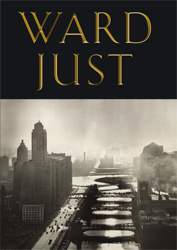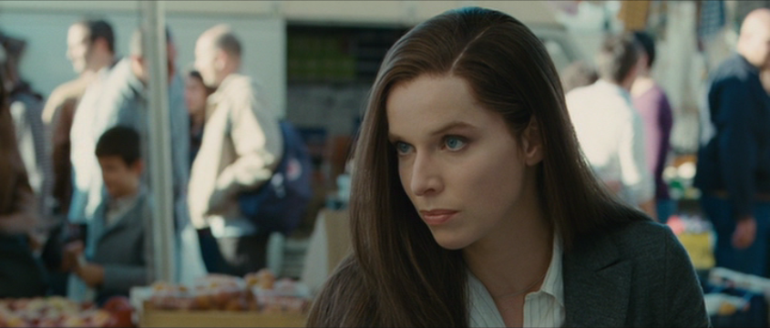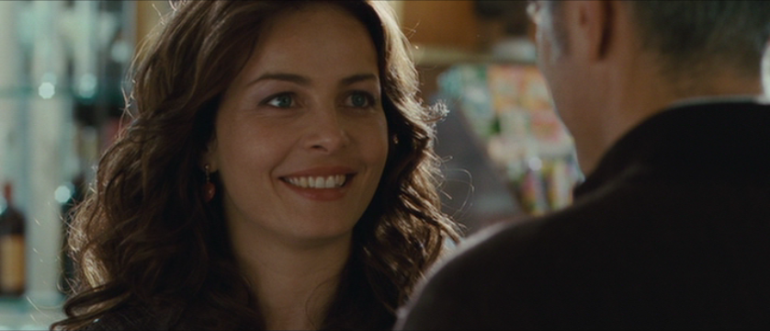
Rodin’s Debutante is Ward Just’s seventeenth novel. It has left me grappling with my response. As a novel — as a work of fiction with a beginning, an end, and, not too long before the end, an excitement of some kind — I found it wanting. There were several beginnings, and the excitement was distributed throughout the book with little sense of overall pacing. I was not sure what the book was about, really. But these are formal concerns, difficulties with the mechanics. Which is not to suggest that the book didn’t purr along smoothly, or that I was ever anything but eager to turn the page. But I had the sense ot too much of this and not enough of that. And by the time I was done, I was pretty sure that I’d have enjoyed the reading of Rodin’s Debutante much more if it had been presented as a series of discrete stories, sharing characters but not narrative trajectories. Each story would have concerned an aspect of the life of Lee Goodell, whose coming-of-age novel it is. There are several very fine stories in the book; there are none that aren’t engaging. I’m aware that the author may have rejected this novel-in-stories approach because “life isn’t like that.” What’s more, now that I’ve done with the reading, my memory is doing a fine job of reorganizing the material in separate stories. I find myself wondering, why does it matter how Ward Just decided to lay out his novel?Â
The satisfactions of Rodin’s Debutante remain considerable. They have everything to do with the recreation of a bygone America that has left few traces. The country was closer to its pious origins during the novel’s time-frame, which runs from 1914 to 1963; it was simpler and more earnest. An uneasy sophistication was beginning to settle on the shoulders of the elite, who could see an unwanted class structure emerge  in the shift from an agrarian to an industrial society. Whatever pipe dreams Jefferson might have harbored for yeoman farmers, it was difficult to conceive of an enlightened urban proletariat, and the propertied classes did not give the undertaking much effort. Instead, the professionals who administered the affairs of the wealthy slipped naturally into positions of patriarchal oversight from which they kept the peace among the general public by whatever means they deemed fit. But they remained uncomfortable with the idea of their power. It looked too much like the old aristocracy that their forebears had left behind in Europe. Candor suffered as a result. Left hands got good at doing things that right hands didn’t know about.Â
in the shift from an agrarian to an industrial society. Whatever pipe dreams Jefferson might have harbored for yeoman farmers, it was difficult to conceive of an enlightened urban proletariat, and the propertied classes did not give the undertaking much effort. Instead, the professionals who administered the affairs of the wealthy slipped naturally into positions of patriarchal oversight from which they kept the peace among the general public by whatever means they deemed fit. But they remained uncomfortable with the idea of their power. It looked too much like the old aristocracy that their forebears had left behind in Europe. Candor suffered as a result. Left hands got good at doing things that right hands didn’t know about.Â
Only an outsider would see hypocrisy here, and it is precisely the absence of hypocrisy that Just establishes in the most powerful of the stories that he tells in Rodin’s Debutante. This is the story of Magda Serra. Magda is a classmate of Lee’s at the high school in the Lake Michigan town somewhere between Chicago and Milwaukee. She is a working-class girl. Her mother is a Serbian immigrant; her father, a Puerto Rican who has abandoned his family. One night, Lee’s father, a judge, comes home late, bringing a group of other leading citizens with him. They sit in the judge’s study, and, through open windows, Lee eavesdrops on their discussion, which concerns “an attack” on Magda, who was discovered by the school janitor in a small room near the gym. The members of “The Committee,” as Lee refers to six of the eight men in his father’s study, have convened to decide how to handle the matter. Because Magda can’t or won’t talk, her assailant remains at large. But the Committee is somewhat more concerned about the town’s image, and that’s why it’s Alfred Swan, the publisher of the local newspaper, who is under more pressure than the chief of police. The other men in the study want Alfred to treat the story as blandly as possible, so as not to attract the lurid interest of the Chicago papers. This is precisely what Alfred does, but, needled into cussedness, he puts up a fight.Â
There are eight people in this room, Alfred said. We all know the details of this crime, or most of the details. I’m sure the chief has withheld the worst of them. When this meeting is over some of us will go home and tell our wives, of course swearing them to silence. And as surely as the day will dawn, this story will be all over town by close of business tomorrow. The first question will be: Who’s the victim? The second will be: Who’s the suspect? And the third will be: Why haven’t I read about it in Alfred Swan’s newspaper? What’s the World covering up? That bastard Swan, you can never trust him. Swan only prints what suits him. Fuck him, they’ll say. Fuck Alfred Swan and his newspaper. I’m canceling my subscription.Â
I remembered how startled I was. I Had never heard that word used in our house. Occasionally, my father allowed himself a “goddamn” and, in extremis, “shit,” and never within my mother’s hearing. Ungentlemanly behavior, my father said. The language of truck drivers.Â
The discussion remains wilfully oblique. What exactly happened to Magda is left to the imagination. What interests Lee, in any case, is the way in which the men handle the matter — this is how things are done. Something of an old soul, he is not panting for sordid details but, on the contrary, registering how much can be accomplished without their DIsclosure.Â
Near the end of the book — where a climax might be in a more conventional book — Magda re-enters Lee’s life. She has become a school teacher in St Louis, but she has not really recovered from the rape. The congruence of her own amnesia and the town’s desire to put the matter aside (in the absence of a likely suspect) have plastered over the event, but the plaster is as obtrusive as a representation of the rape would be. It is the absent thing that everyone is aware of. Magda still recalls nothing of what happened, and has come back to the town in hopes of finding out something about what happened to her. But there is little for her to learn. With Lee she is polite, but an underlying implacability shows through. Lee is at a loss to know what Magda needs to hear, and he tells her that he hopes that he hasn’t upset her. Her response is astringent: “I’m always upset. It’s how I live.” We are left with no sense of whom to blame for the terrible thing that has happened to Magda. Because, as I say, the scene occupies the real estate of a climax, well-trained readers will shudder to think that, at the last minute, Lee himself is going to be unmasked as the rapist. Of course no such thing happens, but the anxiety is of a piece with the clouds of unknowing in which Magda’s story is immured.Â
Between overhearing his father and the other men discuss Magda’s rape, and actually discussing it with her years later, Lee lives through many interesting chapters that have nothing to do with Magda. In fact, they have nothing to do with the carefully reconstructed lake shore town in which Lee grew up. After the rape, Lee’s mother persuades the judge to move to Chicago’s North Shore. For a reason that is actually hard to guess, Lee is sent to a boarding school to the west of the city, where we see him in the course of another one of this novel’s stories — I’ll come back to it in a moment — after which he goes to the University of Chicago and takes up sculpting blocks of marble in an unsafe neighborhood near Hyde Park. He falls in love with his roommate’s girlfriend after the roommate returns to his native London. After graduation, Lee has a successful first sale of his sculptures, and he marries Laura as soon as her mother pulls out of pneumonia. A series of sweet honeymoon snapshots ensue, taken in Naples and Florence. Only after all of this does Magda reappear, and she has absolutely nothing to do with any of it.Â
Why should I care? As I say, my memory is rewriting the book to suit my sense of its stories — what it has to tell me. The prep school story that I mentioned a moment ago is a football story. Although not a big boy, Lee is a fast and agile runner, but his school’s team is so demoralized that it loses sixteen games in a row. We learn this in the first of the story’s twp scenes, which takes place in the office of a departing headmaster. Lee asks that a few hundred dollars be budgeted for team training; he has organized a football camp for the month of August at a teammate’s aunt’s estate in Wisconsin. The conversation ranges far and wide from this petition, however, and it seems inexplicable that Lee would wait until the last minute to show himself to a man whom he seems to admire. We become aware that the author is stretching the scene in order to show Lee to us. An air of implausibility gathers in the corners of the headmasters office.Â
The second scene takes place after the last game of the following football season, which Lee and his team have just won. Lee lingers on the field, savoring a victory that
he can already feel slipping into the past. His attention is drawn to a Cadillac limousine idling in the trees beyond the goalpost. The powerfully-built old man sitting in the limousine turns out to be Tommy Ogden, about whom I’m tempted to say nothing. Tommy, an eccentric railroad heir, is the founder of the school — he grew up in the house that became Ogden Hall School for Boys — but he is so reclusive that half the students doubt that he even exists. We know all about him, though, because it is his story that opens Rodin’s Debutante; he is in fact the connection between the sculpture of the title and Lee’s career. Tommy has (of course) supplied the funding for the football camp; at Christmas, he will send silver cups from Tiffany to each of the boys on the team — anonymously. Only Lee gets to meet him, and Lee will not mention meeting him until the last page of the novel, when he surveys the burning ruins of Ogden Hall — it is now 1963 — with the other hero of his team, a boy named Hopkins who has grown into a rather sour and unpleasant commodities broker.Â
It is all very well to say that Ward Just is an old man with an old man’s license to write whatever pleases him. It seems ungallant to see in Rodin’s Debutante‘s strange proporitions a “falling off” or a disappointment. In the Book Review, Steven Heighton all but hails the novel as a groundbreaking re-invention of the coming-of-age form. In Lee Goodell and his father, the judge, Just has created two very attractive, very American figures, and, in Tommy Ogden, an unusual but entirely believable one. In the background, there is Chicago, a tough town whose bookkeeping, however, is pristine, because its corruption comes at fixed prices. I tried thinking of Rodin’s Debutante as a novel “about Chicago,” but that’s just what it isn’t; it’s a novel about men who manage somehow to stay out of Chicago, even if they live in it. Chicago, one fears, is for truckdrivers.Â









